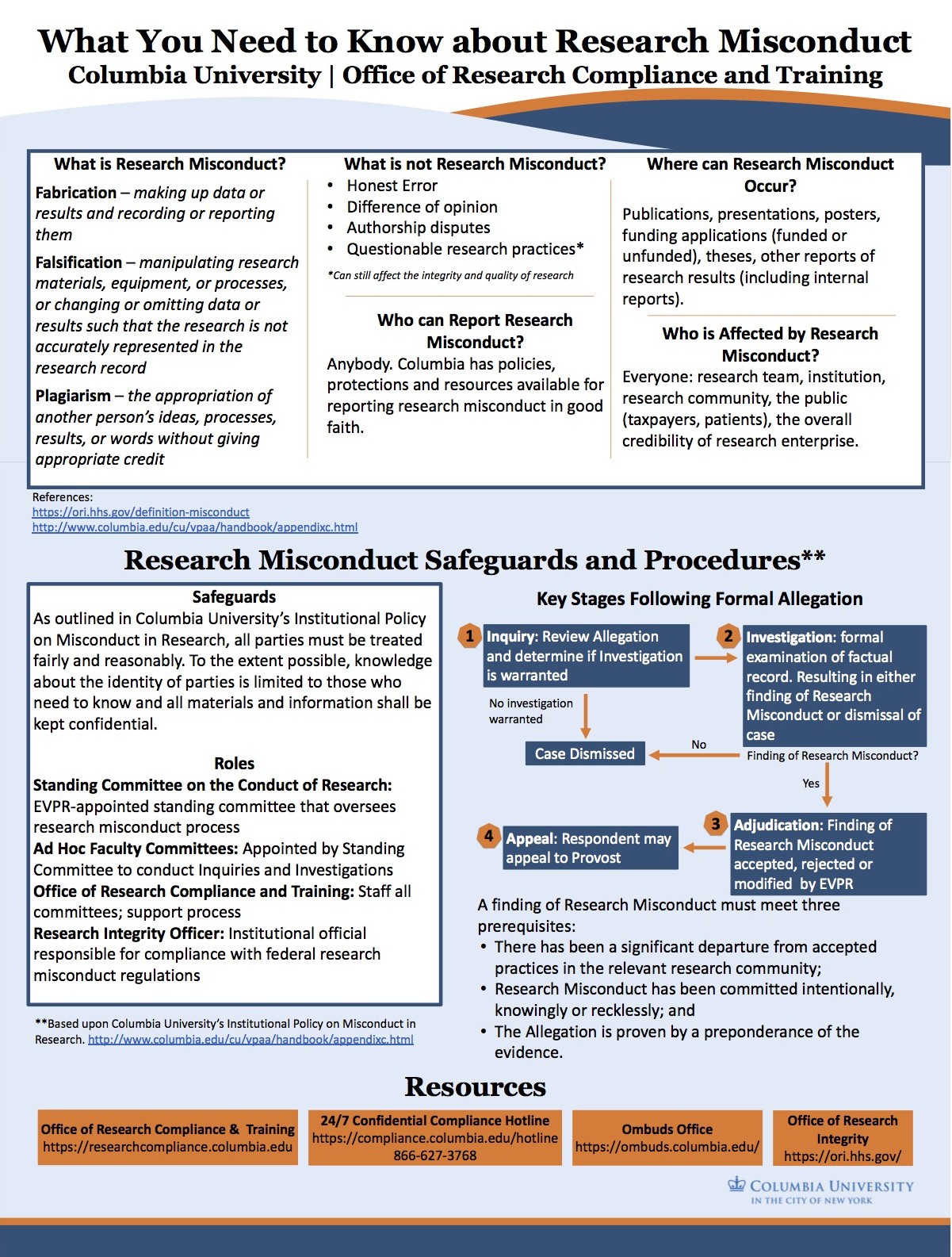Research Misconduct
Columbia University is committed to ensuring the integrity of research conducted under its auspices and has put in place policies and procedures that define misconduct, outline the process for investigating allegations, and explain the consequences of committing misconduct.
The University’s Standing Committee on the Conduct of Research implements the Institutional Policy on Misconduct in Research ("Policy"). The Office of Research Compliance and Training helps administer the Policy and is a resource for anyone with concerns or questions about possible research misconduct. Naomi Schrag, the Vice President for Research Compliance, Training and Policy, is Columbia's Research Integrity Officer.
The University defines research misconduct, in accordance with federal policy, as any fabrication, falsification or plagiarism in proposing, performing or reviewing research or in the reporting of research results. Research misconduct does not include honest error or differences of opinion, authorship disputes that do not involve plagiarism, and violations of other University policies (e.g., sexual harassment policy).


